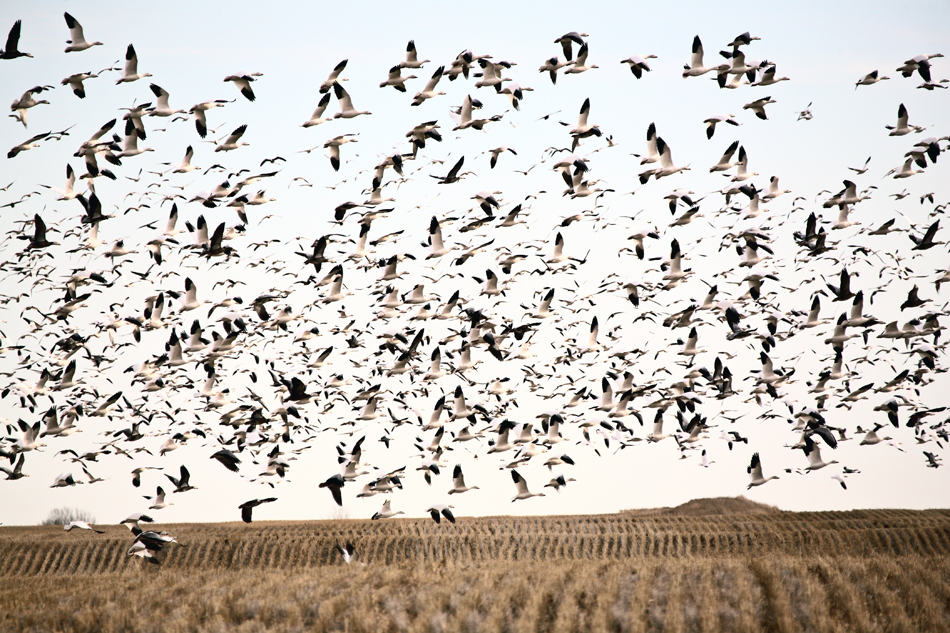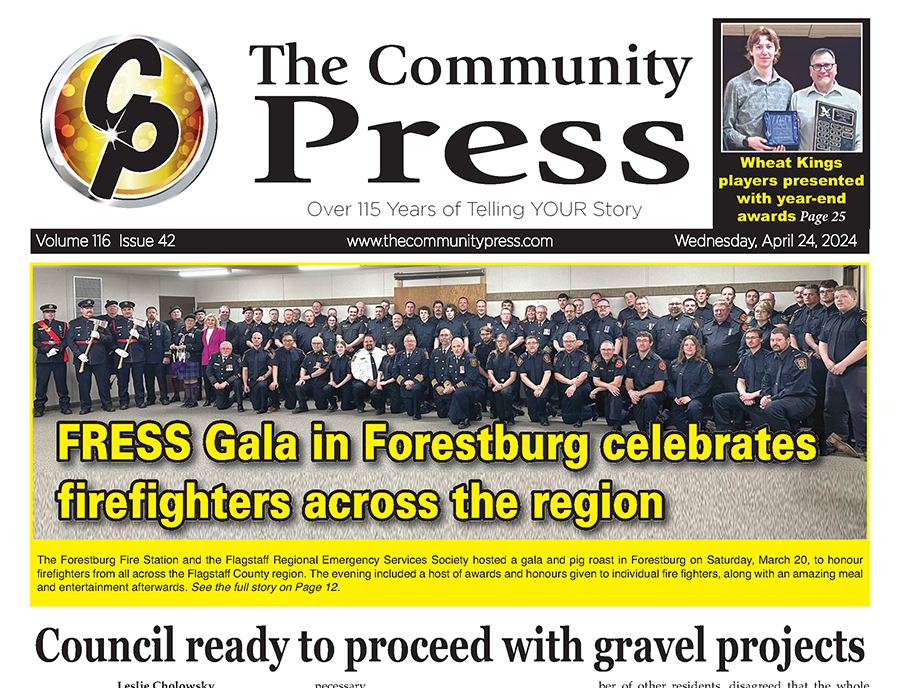Natural controls for grasshopper populations gaining sway
Heather Cameron,
Local Journalism Initiative Reporter
The 2024 Farming Smarter Conference, which was held recently at the Sandman Signature Lethbridge Lodge, included a presentation from Professor of Environmental Science at the University of Lethbridge, Dan Johnson titled “Hoppers be Hopping” that was about the reoccurring hordes of grasshoppers and how natural controls can be used to sustainably manage populations and reduce outbreaks.
“What is sustainable?” asked Johnson. “What does sustainability mean? Basically, continual, continuing, reliable, effective. Secondly, we don’t throw away things that we’re going to need later, and that’s all there is to sustainability. We want to have control in a sustainable way that’s going to last, but we also want to do it in such a way that we are ready for the next outbreak.”
Johnson then spoke briefly about how Sygenta recalled all lambda-cyhalothrin based products from market on the basis of toxicity and how that move has caused some impacts on sustainable grasshopper level control, and as a result of that move, everyone is trying to figure out what to do without it. Fortunately, Johnson said, there are new products to address it. Some of the work he does to address the grasshopper issue, Johnson said, he did in Africa and he not only tested against grasshoppers, he also tested against locusts, as there is a huge problem over there. That said, Johnson took a moment to promote his association with the Global Locust Initiative, a group that works to develop sustainable ways to address devastating locust outbreaks (https://sustainability-innovation.asu.edu/global-locust-initiative/).
A while back, Johnson said, he actually found out that one could change the behaviour of grasshoppers with a tiny, bit of pyrethroid lambda, which is now illegal, or deltamethrin.
“What does it do?” asked Johnson. “It drives them into the grass. That tiny bit of pesticide doesn’t kill them, just drives them into the grass for a day, but if they have spores they get sick. The two working together, sometimes will do it, so maybe we can make sustainability by coming up with innovation like that, but we don’t have that kind of time whenever an outbreak hits, but we’re so much more sustainable than we used to be. They had no pesticides in the past. They put tar and oil on hopper dozers and dragged them through the fields. We’re way, way ahead of that, of course.”
The problems with sustainable control of outbreaks, Johnson said, is it’s not just one insect and the only way to tell what they’re going to do is to actually look for damage and learn to tell the species apart. Sustainable, Johnson says, means getting the ecology to work for you over long periods of time and also used charts to illustrate how complications can come when weird weather happens.
“We really need to train surveyors and farmers to just know, at least the top 10, so they can recognize them,” said Johnson. “I think it’s important because you can anticipate damage, but then you can also control spraying.”
Johnson also briefly spoke on bio-control.
“We’ve done a lot of testing around the world and it’s safe for Vertebrates it’s safe for wildlife, but it’s also often not very effective against the pest, so that’s a really uphill battle all the time,” said Johnson. “We put together a world review of methods and there’s bio control, there’s natural enemies, there’s even birds and spiders and things. There’s predators, prey, involving grasshoppers. We actually went out and surveyed a hundred spots in Alberta and found our own world isolate that we’ve been using in Africa and Australia and China.”
Johnson explained that they did experiments for several years with lots of grass upper sampling and spraying of bio-control agents.
“The news on Bio-control is that I like that research,” said Johnson. “I think it’s important to do, but it’s not going to solve our problems. I think our future problems are more specific and directed chemicals that are less harmful to the non-target species, and I think industry and research is to do that. I’m not in that area, but I think that’s the future, and I think the other part of it is we have to stay on top of it. We have to know what species we have.”
Heather Cameron,
Local Journalism Initiative Reporter





